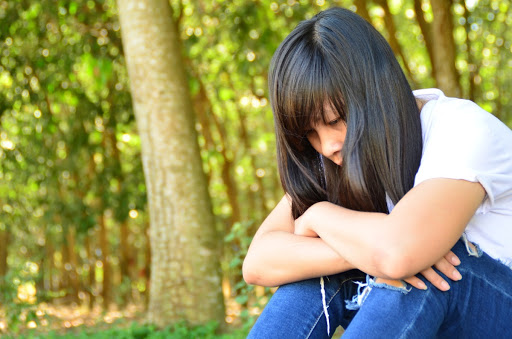
We are truly living through an unprecedented and historical time as a community, nation, and world. It is at times surreal and triggers so many different emotions. Often, being able to identify our feelings can help us manage them.
Some of what many of us are feeling is grief. We typically associate grief with death, but grief is about loss in general. In the COVID-19 outbreak, we grieve what we have lost and what we may yet lose. We grieve the loss of ‘normal life’, particularly for the most vulnerable of us. We grieve the loss of our usual freedoms: seeing and hugging family and friends, sending our children to school, popping into the grocery store, or going into work, a restaurant, or theatre. Much has changed.
Elisabeth Kübler-Ross, a Swiss-American psychiatrist, presented her Five Stage Theory of Grief in her book On Death and Dying (1969), which we can use to scaffold our own thoughts and experiences during the COVID-19 outbreak. [As a caveat, one does not move through the stages in a straight line; rather we move in and out of stages in various order, often cycling through them.]
1. Denial: We are shocked and overwhelmed so pace grief with denial.
- I am safe from this virus! It won’t affect me or my family.
- Physical distancing is not necessary.
2. Anger: We try to make sense of the loss often trying to find a cause to blame
- It’s ‘their’ fault life is upside down!
- They should have done things differently!
3. Bargaining: We search for away back to the old normal
- It will be okay to still physically socialize with my close friends and neighbours; I’ll just stay away from other people
4. Sadness: We start attending to the present and feel the despair of the loss of normalcy and freedom
- I’m sad that I cannot go physically visit my elderly family
- I am disheartened my children are missing their friends
- I am unhappy I cannot just go places without a care
- I am discouraged not everyone is taking things more seriously
5. Acceptance: not to be confused with resignation; this stage is about accepting the new reality (even if we do not like it) and adjusting to it by finding a ‘new normal’. Hand-washing, physical distancing, and staying at home becomes a habit. We start to find new ways to focus on that which is valuable and meaningful in our lives be it relationships, learning, fun, well-being, spirituality, and/or community. We develop new routines and structures, and at least some things start to become a bit more predictable once again.
- I learn to cultivate my relationships in my house in different way; I learn new games to play with my children; I do different activities with my spouse; We get to spend more time together
- I continue to stay in contact with people by phone, video, or talking to them more than 2 metres away outside.
- I spend my time differently -I try and learn something new, or get to those projects I always meant to
- I grocery shop less frequently and plan more rigorously.
Grief is a normal reaction to a loss. We are in the midst of a sea of change, which will test our resiliency. Resilience does not necessarily mean finding something positive within a negative situation. It means that despite some things going wrong, you develop the belief that you can and you will do your best to deal with the situation and carry on. To quote Dr. Kubler-Ross
“You will learn to live with it. You will heal and you will rebuild yourself around the loss you have suffered. You will be whole again….”
Find your way
Our clinicians provide safe, compassionate support to help people manage mental health challenges using evidence based approaches including CBT, DBT, and ACT.
